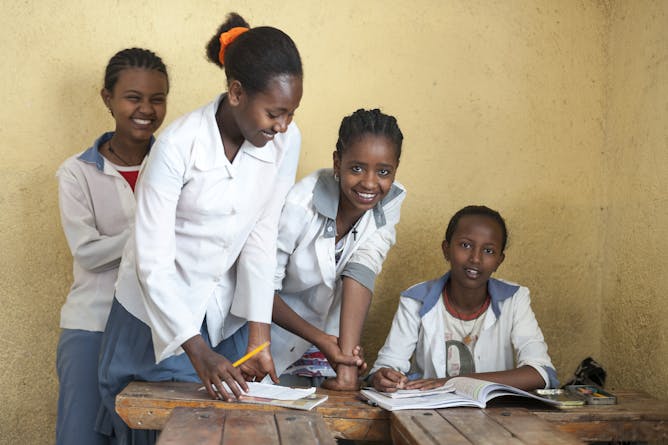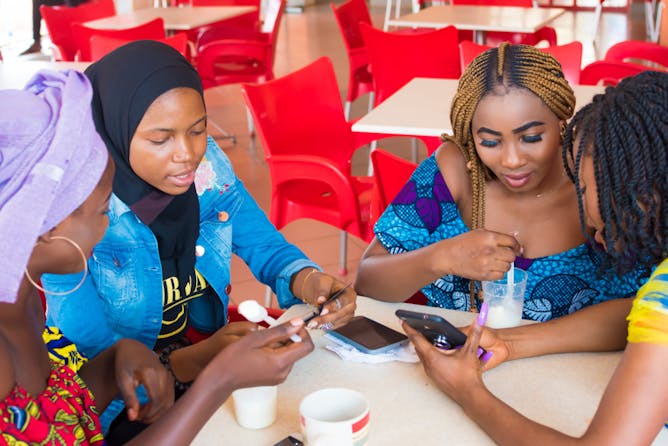|
Girls and women don’t fare well in Ethiopia. Fewer girls than boys finish school while women, for the most part, aren’t engaged in formal paid employment. There’s hope that things might change following the appointment of a female president, as well as half of all cabinet positions being filled by women. Sosina Bezu explains why providing role models could help girls break away from cultural stereotypes.
Smart phones have been touted as driving a number of changes in societies across the world. In Nigeria, research by Salihu Ibrahim Dasuki and Naima Hafiz Abubakar shows how women are using WhatsApp in ways that are changing their lives – from lobbying local politicians to helping their children complete their homework as well as starting businesses.
|

Having women in power may keep Ethiopia’s girls in school.
Jazzmany/Shutterstock
Sosina Bezu, Chr. Michelsen Institute
The appointment of women into positions of power can break stereotypes and inspire girls.
|

Messaging services like WhatsApp open many doors for Nigerian women.
i_am_zews/Shutterstock
Salihu Ibrahim Dasuki, Sheffield Hallam University; Naima Hafiz Abubakar, Bayero University, Kano
With technology women are able to become agents of their own change.
|
Politics + Society
|
-
Martin Plaut, School of Advanced Study
As South Africa became an international pariah, it began working in shady ways through even more shady operators, including getting arms from the Soviet Union and China.
|
|
Environment + Energy
|
-
Nathanial Matthews, King's College London; Frank van Steenbergen, Utrecht University
Smart roads in Africa could help reduce the impact of flooding and other disasters that affect rural communities.
|
|
Arts + Culture
|
-
Haley McEwen, University of the Witwatersrand
Despite South Africa's progressive constitution, LGBTIQ people continue to face discrimination in all social spheres.
|
|
From our international editions
|
-
Heike Doering, Cardiff University; Glenn Morgan, University of Bristol; Marcus Gomes, University of Exeter
Our research shows how Brazil's business elite has influenced the course of politics in the country.
-
Natalia Pinazza, University of Exeter
Bolsonaro's election victory left Brazil fragmented
|
|